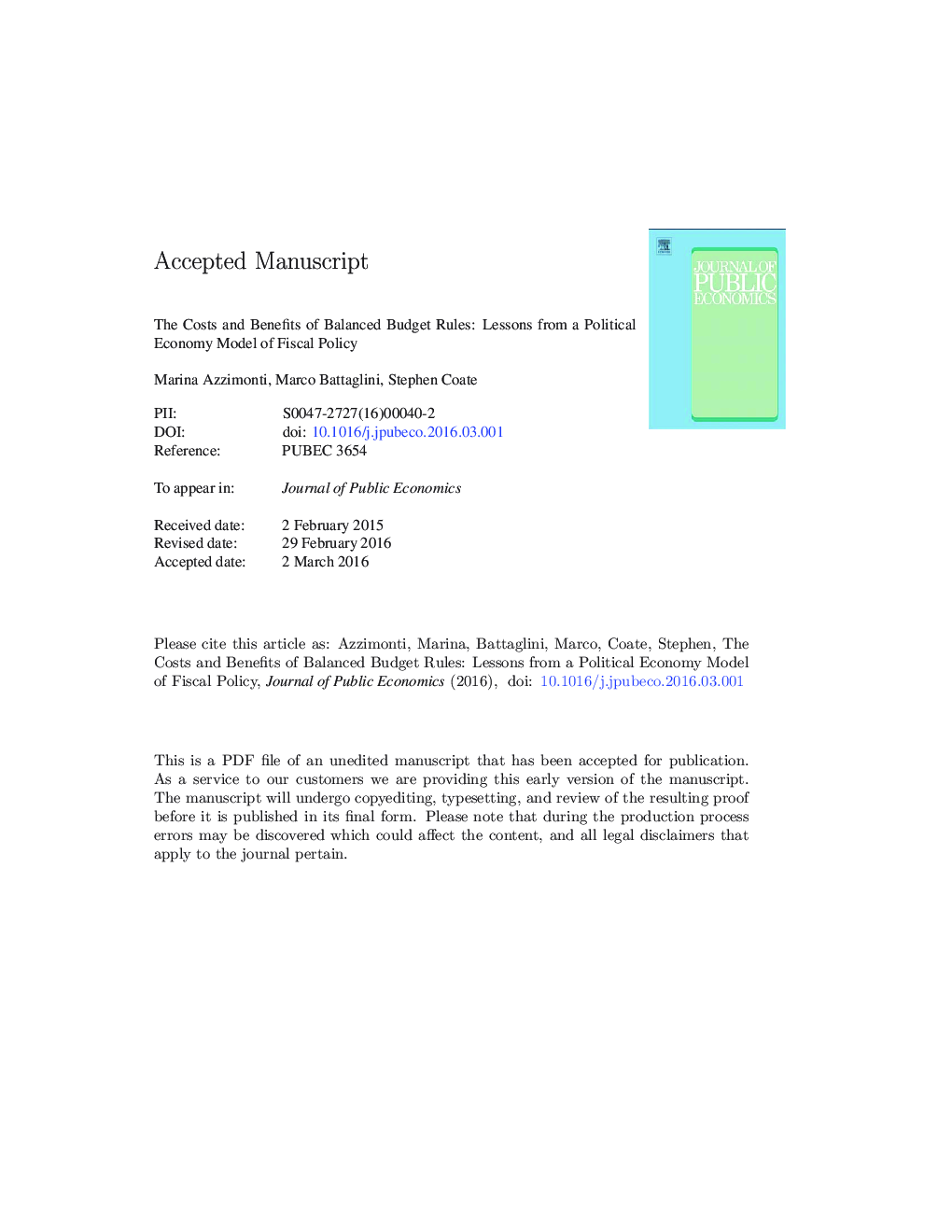| Article ID | Journal | Published Year | Pages | File Type |
|---|---|---|---|---|
| 969678 | Journal of Public Economics | 2016 | 56 Pages |
Abstract
This paper analyzes the impact of a balanced budget rule that requires that legislators do not run deficits in the political economy model of Battaglini and Coate (2008). The main finding is that the rule leads to a gradual reduction in the level of public debt. Legislators reduce debt in periods when the demand for public goods is relatively low. They do so because the rule, by restricting future fiscal policies, raises the expected costs of carrying debt. Whether the rule increases citizen welfare depends on a comparison of the benefits of a lower debt burden with the costs of greater volatility in taxes and less responsive public good provision. A quantitative version of the model is developed in which costs and benefits can be evaluated. A welfare loss results if the debt level when the rule is imposed lies in the support of the long-run distribution associated with the unconstrained equilibrium.
Keywords
Related Topics
Social Sciences and Humanities
Economics, Econometrics and Finance
Economics and Econometrics
Authors
Marina Azzimonti, Marco Battaglini, Stephen Coate,
